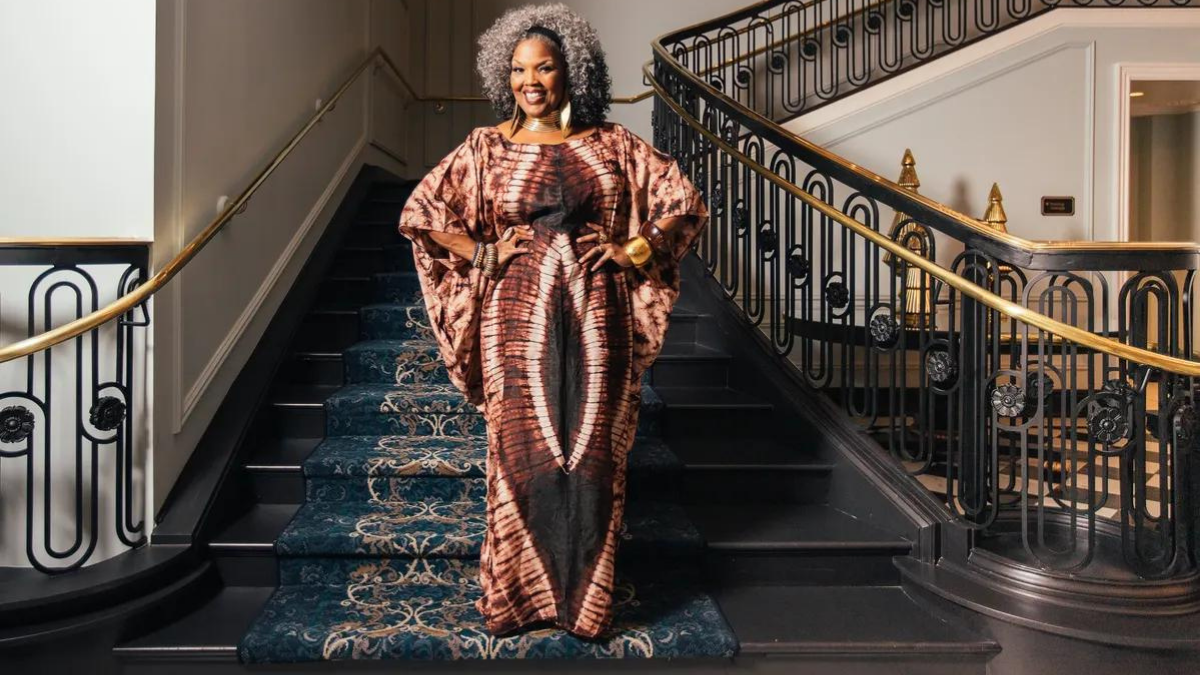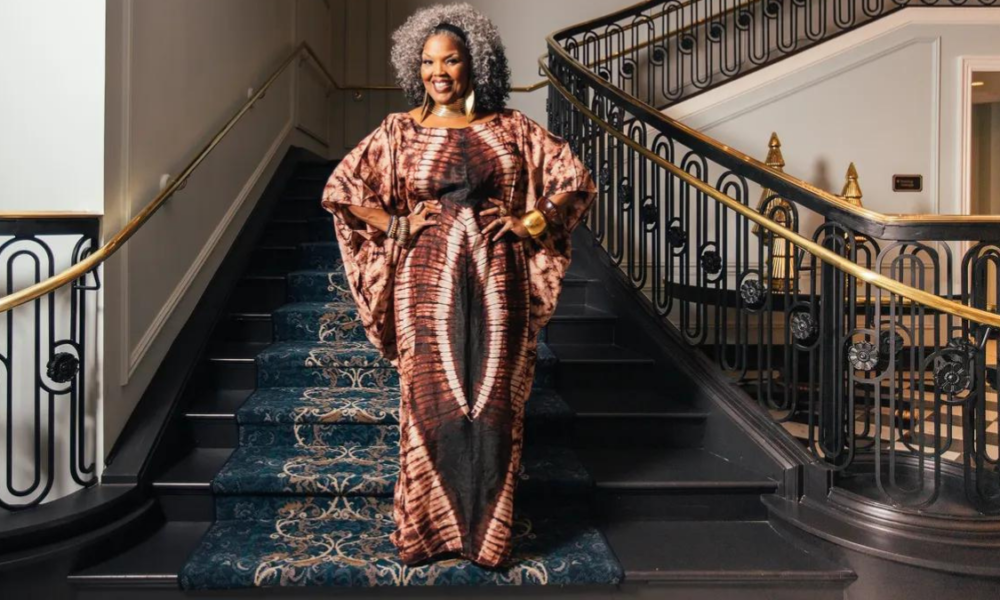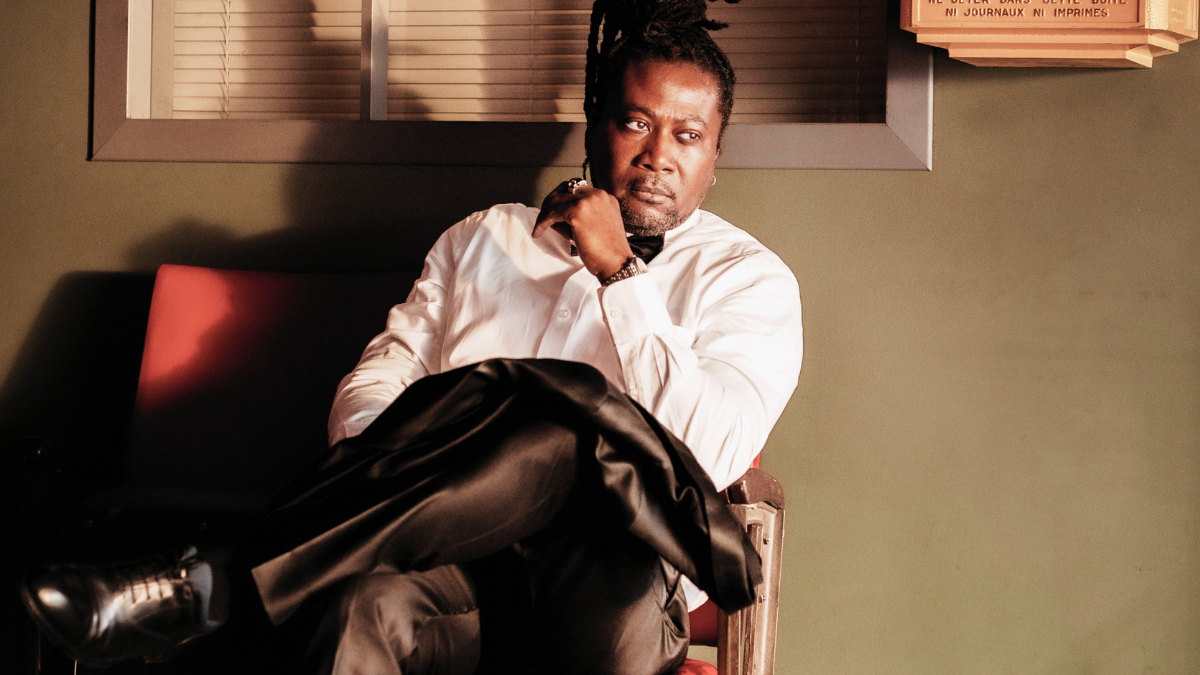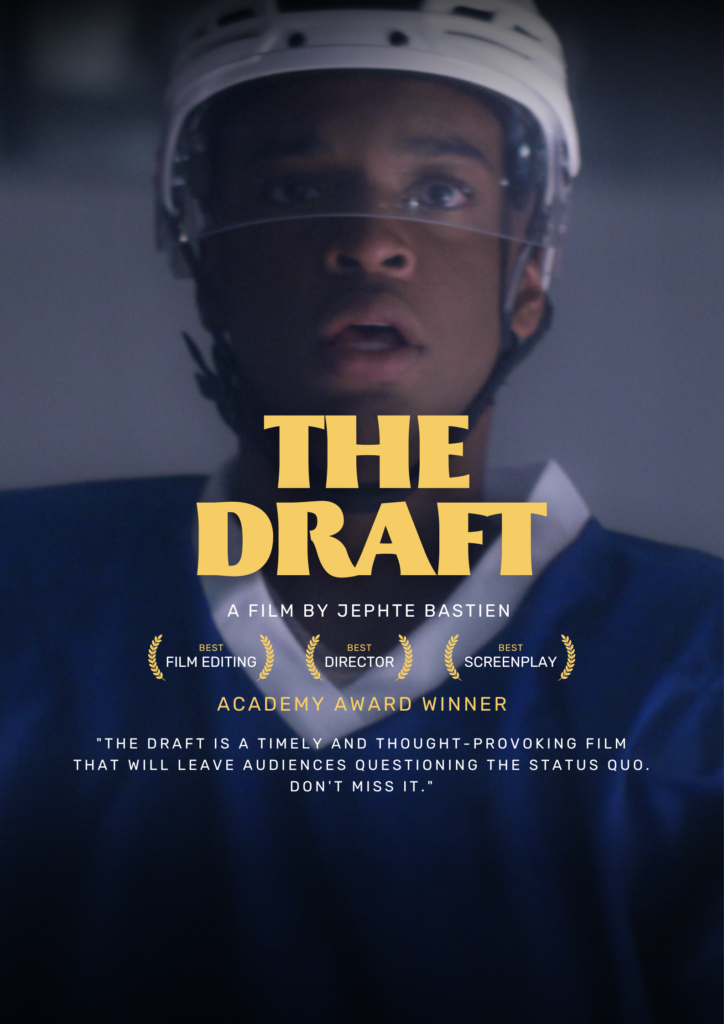TVM: Today I have the distinct privilege of speaking with a Sister lighting up the opera stage Soprano Angela Brown. How are you today?
AB: I am fine thank you for having me
TVM: Thank you so much for speaking with us we really appreciate it. Before we get into your voice, and your opera, from a sister’s point of you how exactly did a “SISTA’S” gravitate towards opera?
AB: You know I always say that opera chose me, I did not choose it. I’ve always sung I started out singing in my gran father’s Baptist church, and as I got older, I started doing a lot of musical theatre and other genres of music but, classical music was the last thing I picked up. When I went to Oakwood University in Huntsville Alabama my teacher there said you know you can do this for a living. And so as I began to learn the technique I took to it like a duck to water! It was nothing! It was very easy for me. The challenges have been as I’ve gotten older and I get more and more use to my technique, not staying in something that I was use to but growing with it. That’s a challenge for every singer, is to grow with their instrument, and not just rely on what was easy in the beginning but to always keep cultivating and making it better. So I always say opera choose me I didn’t choose it because I sang so many other genres it was the last thing, and people wanted to pay me.( she laughs..)
TVM: My parents are CNN junkies, so I often get stuck in there web, I do recall seeing a segment with Tony Harris.
AB: Yes
TVM: “What matters”, and you were on there, can you just elaborate a little bit for our readers.
I did a segment with Tony Harris about opera from a sister’s point of view. It’s a show that demystifies opera for audiences that normally would not go. When I first started doing the show, my first idea was I wanted to bring it more to my people, people of color because when I was out on the opera stages of the world there were mainly monochromatic. It was a bunch of white folks looking at me. And I was like… Where are the people of color? When I was younger, I know that I had the opportunity to go to a lot of symphony concerts, ballets, and things like that. Now a day’s they’ve cut so much music out of the schools kids don’t even know who Lya/Tya Price is, and she ain’t that far in the back. So I wanted to start the show to let my people know (she laughs) that we too can do this. But as I began to do the show honey…)I found out that white people don’t like opera either, so it’s become about embracing opera. It’s an art form that you will find yourself in there are African operas I don’t care how many people you paint up. Ieda it’s an African opera! Egypt and Ethiopia are in Africa I claim it honey…) You have African American operad “Porky and Bess” You have Asian operas Madam butterfly and Turindo. You have Italian operas Natasko, and that list goes on. Hispanish operas like Carmen. You will find yourself an opera it’s just a matter of trying it. Don’t say you don’t like a mushroom until you’ve had a mushroom. At least go and enjoy the art form. So that’s why I started opera from a sister’s point of view and that’s what Tony and I were talking about on CNN.
TVM: I enjoy the fact that you seem to take a lot of care in infusing the youth and to educating everyone about opera Kudos to you for that. When I hear you sing for me it’s like what I would imagine heaven to be like. If you could describe your voice, how would you describe it?
AB: Oh Wow! It’s funny that you would ask me this questions cause I was listening to myself sing on some recordings. My very first recording on to this last recording I just did. I just listened and I hear the development and I would say that my voice if I can encompass everything that I’ve heard over the years, I would say I have an even smooth middle with high spinning sparkly tops. And a very rich low gewy chewy delicious bottom register. It’s like a piece of Godiva chocolate that melts in the pit of your mouth. That’s my voice.
TVM: Who were some of your vocal inspirations growing up?
AB: I did not come to classical music till I was 21 which was 2 days ago. (She laughs)
I would say growing up, some of my big influences were, Gladys Night, Natalie Cole. When she first came out with that 1975 album “In separable” child…. She was my girl! Then we go to broad way and it was Jennifer Holiday. (she’s singing Your gonna love me )On the male side it’s Stevie Wonder, James Ingram, Jeffery Osborne then, can’t leave out Mr. Luther Vandross. Group wise there was Earth Wind and Fire, The Commodores. For gospel it’s Milton Brunson the Hawkins family, the Winans, the Clark sisters. I believe in building a voice you have different influences, and I believe also, that is one of the reasons why I am sought after because I can fit so many bills just because I never let go of all my influences it’s all a part of making up me and my voice because when it comes to classical music I tend to go towards the voices that are not necessarily so sterile sounding, they are more beauty, and they are more Bellecanto they are singing the meaning of the words like Maria Culluses, and Latin prices who is my biggest influence. Jessie Norman, Kathleen Battle. The Giozati who was teacher. To have all of those influences in the same sloop, The same stew that I came out of which was a heavy R&B gospel thing, and then to put that it’s just going to make me a more well-rounded singer.
TVM: Do you have a vocal routine? If yes can you tell your readers about it?
AB: When I am preparing I might do some humming, vocalise, and some listening but if I don’t have anything of the essence to prepare for, I’ll do light stuff, and I’ll teach. But when I am ready to prepare for something, like I’m getting ready to go to Calgary to do Tulsca, I’m going to go over the music with my coach or an accompanist just to make sure I have everything, and that the Italian is clean. So that’s my routine it is very light until I get closer to the actual job, and then I will train more. When I learn a new role that’s a different process, you go through the first three months just adapting to the role in your voice, and listening and getting it into your body with your ear orally. I always listen orally first even if I lean the mistakes I can always go back and then when I get with my coach they break down the rhythms, and the language, and I would rehearse it till I memorize it.
TVM: Speaking of the different languages, because you perform in various languages I am curious to know if you speak any of them?
AB: Well you know I get around with a first person Italian (she laughs) I married a French man and he speaks fluently, French, English and Italian. So I’m not fluent In French, no- where near it but I can get around.
TVM: People have these miss conceptions of how physical it is for an opera singer, and I was just wondering if you find a connection between vocal workouts and physical work-outs?
AB: Yes! You know when you don’t have breath, you don’t have voice. And if you are not doing something to raise your heart rate, and sing along…) I don’t choose to run or jog, I choose to walk or ride a bike. There are a whole lot of things to do then hurting my knees… child( she says jokingly) you have to keep your physical-self up. I always know when I have not done enough because I know I don’t feel my breath as well you don’t feel your support as well. Doing sit ups and crunches just to keep connected to that core. Helps!!
TVM: Does what you eat affect your voice for the positive or the negative?
I stay clear of anything creamy/dairy. I get ready 3 hours before the curtain so I’m going to eat some chicken soup or a salad maybe a sandwich. I stay away from anything that will cause your saliva to thicken I stay away from. And that could be orange juice, raisins, bananas, (she says I hate bananas… and laughs). Smoothies there fine and some bread, there fine too. I’m going to give it to you straight grapes fruits, apples, apples are wonderful, warm temperature apple juice is great because it is as closes to saliva, because water can actually dry you out a little bit. Yeah! Hydrate! Hydrate! Hydrate! Drink a lot of water but during the show, because apples juice will also produce saliva, it helps you more.
It makes you salivate.
TVM: What time of day do you feel vocally at your best?
AB: I feel vocally at my best around 4:00 or 5:00 on through to midnight, then I’m ready to shut it down, but you know I do what I have to do but I am at my vocal prime around 4:00 in the afternoon those are the diva hours (she laugh).
n this question, because I believe a lot of singers have passion and pride about themselves, they have standards, they have morals. There are a lot of singers out there that live for the craft, but don’t live for the craft that they are willing to sacrifice their souls for it ain’t that deep. To say that I am different, I don’t know I have to let whoever is doing the listening answer that question, because for me personally I am a working singer so I never see myself as a big “I” or a little “u” or anything. I am God’s child, I am a working singer, and I’m blessed. Ain’t nothing lucky about Angela Brown this is all blessings, God’s got me all the way.
TVM: Which do you prefer recording in the studio or performing live?
AB: You know it depends, because I’ve done a live recordings and I’ve done a studio recording and I have to say that I like the studio a little better because I can make all the stuff that didn’t go well in performance right. I love being on stage, I love doing what I do. But I like recording! Give me some shine, some shade, some reverb, turn it up (she laughs).
I have a new CD coming out it’s a compilation CD Richard Daniel pour did a song cycle for me and Dr. Mia Angelo wrote the Lebreto, and its called a women life it will be released on (Knoxso records)Richard Danielpor’s it’s with the national symphony there are 3 pieces Darkness in the ancient valley, A womens life, and Lacre men…… It will be realised on September 26 2014.
TVM: What advice can you give to up and coming artist?
Never let anyone determine what success will look like for you, because every bodies success will be different. Everybody is going to have a different way to achieve it. And it’s interesting that you said that it is hard to break through in to the music industry. If you think of breaking something you already put a barrier in front of yourself. So take the limits off because God is limitless! It is hard for us to think in infinite terms when we have finite minds. So don’t let anybody determine what success will look like to you. And If you are singing you are in the industry it’s just a matter of getting in front of the right people. SO if you are singing and doing it well, somebody is going to hear you. When an opportunity presents its self, open your mouth there is nothing to big or to small and it cannot always be about the dollar neither can it be about never getting the dollar. However sometimes it’s about the exposure or for your own personal enrichment.
What I tell all the young people that I do master classes with is If this is your passion if you wake up, you eat and sleep this, and you know that you can do this, stick with it. There is no harm in being a star where you are. When I won the met competition in 97 I use to go around and tell these young people if you want to go to the met all you have to do is believe it, and you can do it.my mom one day said Angela stop telling that lie ( she laughs) I said why Momma!? She said; It’s not meant for everybody to sing at the Metropolitan Opera. It’s not necessarily their testimony or their destiny in life. So what I say now is why can’t you be a star were you are not everybody can’t sing at the Met. If it’s not going to be on a national stage, maybe it will be regional. Maybe it may be just right in your state, in your church, or your denomination. In a nut shell, you have to want this that means not putting things in your way that’s going to hold you down, or hold you back.
TVM: What is you ultimate goal when you perform, what do you want your fans to take away from your performance?
When I signed my contract my ultimate goal is to get my check, and pay my bills But in getting my check and paying my bills, I must be worthy of my check. So I want to give a good performance I want to give a performance where they feel full. They be like dammm… that girl can do anything! Because I always want to keep those doors of other opportunity I’m a business women too. I want to give my fans flavors there is so much in me and so many roots from different genres of music. If I don’t share some of everything I am I feel like it’s a disservice so I’m giving you some spirituals I’m giving you a little taste of gospel with a little bit of R&B you know and of course the heavy classical stuff but! I’m going break it down with a little humour I’m going to talk to you.


 Business3 years ago
Business3 years ago
 Business2 years ago
Business2 years ago
 Business2 years ago
Business2 years ago
 Business3 years ago
Business3 years ago
 Business3 years ago
Business3 years ago
 Business3 years ago
Business3 years ago
 Business3 years ago
Business3 years ago
 Business3 years ago
Business3 years ago








































